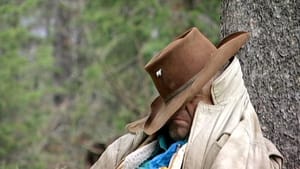Stay in the Loop
BSR publishes on a weekly schedule, with an email newsletter every Wednesday and Thursday morning. There’s no paywall, and subscribing is always free.
Sheep, fish, and more make up the Strange Truth film series

“How do we represent ‘reality’?” That’s the question Vicky Funari has been exploring since 2009 in her annual selection for her documentary film production class at Haverford College. “I’ve been intrigued by the idea that documentary films often make the truth seem strange,” she said.
Funari and fellow faculty members Joshua Moses and John Muse have expanded her class exercise into Strange Truth, a series of six films showing at the Bryn Mawr Film Institute and on the Haverford College campus. While some films are fictional works, all convey what the curators have dubbed a “nonfiction imagination.”
Of the three events remaining in the series, the film Sweetgrass and “Still Moving: An Evening With Experimental Filmmaker Scott Stark” will be at the Bryn Mawr Film Institute (BMFI), where the majority of films have been shown in a partnership between the college and the BMFI, at regular theater prices. The film Leviathan will screen, for free, at Haverford College's Sharpless Auditorium. All are at 7pm on April 1, April 8, and April 2, respectively. The filmmakers will be present for a discussion after each of the programs.
Cowboys and fishermen
Next up in the series, on April 1 and April 2, are two films that come out of the extraordinary Sensory Ethnography Lab at Harvard University, a media program that seeks to complement our reliance on language — through film, video, phonography, and photography — to describe the world and our existence in it.
Sweetgrass, on April 1 at BMFI, follows a team of cowboys as they herd sheep into summer pastures in the high mountains of Montana. Filmed over eight years, Sweetgrass documents a disappearing way of life, rugged and punishing despite modern trappings like cell phones. The film premiered at the Berlin International Film Festival in 2009 and was part of the POV program on public television in 2011. The film is without narration, interviews, or composed music, allowing the audience to see and hear the environment, the men, and the sheep. Producer/directors Ilisa Barbash and Lucien Castaing-Taylor (head of the Harvard program) will be in attendance.
Leviathan, featured in the 2014 Whitney Biennial, is also by Castaing-Taylor, who will attend the April 2 screening at Haverford. The film was made in collaboration with fishermen working on industrial boats off Massachusetts: In addition to footage captured by the filmmakers, the fishermen wore small cameras that recorded their activities as they worked, and tethered cameras were dropped into the water to record the atmosphere of the ocean and movements of the fish. As the Whitney noted in their description of the film, “This shifting point of view marks a radical departure in cinema, a mode of vision that seems unmoored from the human gaze.”
Varied representations of truth
The final program, “Still Moving: An Evening With Experimental Filmmaker Scott Stark,” on Wednesday, April 8 at the Bryn Mawr Film Institute, features The Realist, a 2013 film by Stark. Drawing on the technology of stereo 3-D photographs popular in the mid-20th century, the film uses store mannequins to create what Stark calls a “doomed loved story…a soaring visual romp peppered with turgid melodramatic moments.”
“Stark turns images, sound, and light into non-documentary films,” Funari told BSR. “He’s an interesting example of the different types of documentary practice; his films are not in the traditional, realist documentary mode. And yet all of these filmmakers are engaged in truth-telling. I continue to be fascinated by just how varied the representation of truth can be.”
Sweetgrass screens on April 1 at 7pm at the Bryn Mawr Film Institute; Leviathan screens April 2 at 7pm at Haverford College’s Sharpless Auditorium; and “Still Moving: An Evening With Experimental Filmmaker Scott Stark” is coming up Wednesday, April 8 at the Bryn Mawr Film Institute, 824 West Lancaster Avenue in Bryn Mawr. Click here for BMFI tickets.
All screenings are open to the public. Screenings at Bryn Mawr Film Institute are free for Haverford and Bryn Mawr College students. Screenings at Haverford College are free to all.
Sign up for our newsletter
All of the week's new articles, all in one place. Sign up for the free weekly BSR newsletters, and don't miss a conversation.

 Kathryn Smith Pyle
Kathryn Smith Pyle